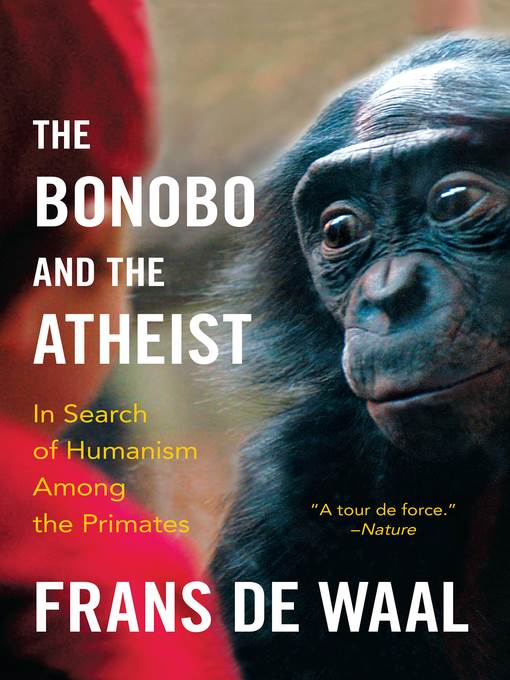
The Bonobo and the Atheist
In Search of Humanism Among the Primates
کتاب های مرتبط
- اطلاعات
- نقد و بررسی
- دیدگاه کاربران
نقد و بررسی

January 7, 2013
Primatologist De Waal (Our Inner Ape) seeks to move beyond the faith-vs.-science divide in this reflection on the origins of morality, drawing from his famed work studying apes. De Waal’s name is particularly associated with bonobos, which provide a matriarchal, relatively peaceful, and sexually uninhibited contrast to chimpanzees, a violently competitive and male-dominated ape not unlike human patriarchy. He compares aspects of both species to humans, finding glimmers of supposedly unique qualities of human intelligence in both bonobos and chimps. Bonobos, “primate hippies,” are unmistakably touchy-feely, but the book also finds traits like friendship, inhibition, and empathy in the less obviously sensitive culture of chimps, as well as other kinds of apes and mammals. Readers will enjoy De Waal’s affectionate, colorful accounts of animal behavior, and those of religious faith will especially appreciate the author’s respectful attitude. While De Waal argues that morality is derived “from within,” not “from above,” he depicts the dilemma between rationalism and religion as a false one, urging fellow atheists to be more conciliatory toward believers. His personal, even idiosyncratic book—Hieronymous Bosch’s Garden of Earthly Delights forms a recurring motif—will likely not be received as the last word on its subject, but readers shouldn’t miss De Waal’s specific form of expertise. 12 illus. Agent: Michelle Tessler, Tessler Literary.

April 15, 2013
De Waal (psychology, Emory Univ.; director, Living Links Ctr., Yerkes Primate Ctr.; The Age of Empathy) is known for his work on moral behavior in chimpanzees and bonobos. Here he explains that unlike their aggressive cousins, chimpanzees, bonobos avoid aggression when possible, employing mutual grooming and sex play instead to ease social tension. Both chimps and bonobos help others, even without hope of gain. This is evidence, de Waal argues, that morality isn't rooted in top-down reasoning or rules but in bottom-up "gut" behavior. From these observations, de Waal segues to an intriguing but less convincing argument against dogmatic atheism (e.g., as defined by Sam Harris or Christopher Hitchins). That atheism, de Waal argues, leaves us nothing to hold on to, but we need something. VERDICT This intriguing book is a hybrid: half science, half personal speculation. Given the persistent view that all animals, even human ones, are motivated solely by self-interest (what de Waal calls "veneer theory," i.e., moral outside, amoral inside), this is a book worth reading. It's also exceptionally well written. It should appeal to the lay reader who enjoys keeping up with today's scientific discussions.--David Keymer, Modesto, CA
Copyright 2013 Library Journal, LLC Used with permission.

























دیدگاه کاربران